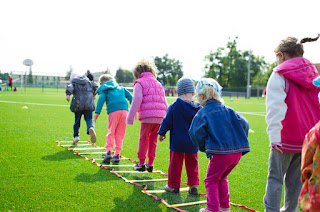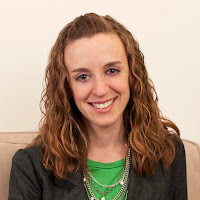
By: Kelley Challen, Ed.M., CAS
Director of Transition Services; Transition Specialist
On March 26, the Massachusetts Department of Elementary and Secondary Education (DESE) sent out an important administrative advisory regarding transition services and graduating with a high school diploma (Administrative Advisory SPED 2018-2: Secondary Transition Services and Graduation with a High School Diploma). This much-needed advisory clarifies when and how students with IEP’s should be issued a high school diploma and also touches on best practices for planning both student graduation and appropriate secondary transition services.
As a transition specialist who is often contracted by schools and families, it is not uncommon to be asked to help determine whether a student is ready to graduate. The challenge in answering this particular question is that there is no universal set of skills or level of knowledge that deems a student on an IEP “ready” to graduate. In fact, students on IEP’s, just as with mainstream students, graduate all the time without being ready for many adult activities (e.g. apartment hunting, changing jobs, applying for a bank loan, comparing health insurance plans).
The truth is, there are a number of skills that we need for “adulting,” but do not need in order to graduate with a high school diploma. As this important advisory points out, the special education process is not simply about completing local graduation requirements. It is also about transition planning and services that uniquely equip a student for reaching their goals after leaving public education. Therefore, we need to rethink the question, “Is my child/student ready to graduate?” And instead, the critical question to ask when a student approaches the end of 12th grade is, “Has the child/student received a free and appropriate public education (FAPE)?”
As I discussed in a previous blog (Transition Planning: The Missing Link Between Special Education and Successful Adulthood), FAPE as guaranteed by the Individuals with Disabilities Education Act of 2004 (IDEA 2004) includes transition planning and services. Under IDEA 2004, a federal law, transition planning must start by the time a student turns 16. Here in Massachusetts, we have even stronger regulations, and secondary transition services may begin “no later than the age of 14.” This means that the IEP has to be carefully constructed to help students build skills “in a stepwise and cumulative manner” toward completing their high school program while also making progress toward their desired post-secondary learning, working, and independent living activities including community engagement.
The foundation for this process is an individualized and coordinated transition assessment process that carefully evaluates a student’s needs, strengths, preferences, and interests beginning before the age of 14. Just as with all IEP goals and services, assessment informs the team’s discussion and decision-making; it helps the team to know how to plan for the long-term, prioritize for the coming school year, and to track progress.
In each annual meeting for a transition-aged student, the IEP team needs to explicitly discuss whether the student is progressing towards their measurable postsecondary goals and whether the educational program and related transition services are calibrated in such a way that the student will continue to make progress. Anticipated graduation date (listed on the top of the Transition Planning Form and recorded in the Additional Information section of the IEP) is a critical part of this discussion each year. When a student, parent, teacher, or other team member is uncertain about a student’s ability to complete local requirements and receive appropriate transition services “on time,” this needs to be discussed directly.
If there is confusion or disagreement about the graduation date, additional assessment may be needed to clarify the student’s needs. However, if the team starts the transition planning process when a student is 14, and carefully plans out the instruction, community experiences, and employment related activities necessary for progressing toward the student’s post-high school goals, and closely tracks the student’s progress, then students, parents and educators will rarely need to ask whether the student is “ready to graduate.” Instead, they will know if the student has received FAPE because the student’s IEP has included well-calculated transition services and there will be clear measures of the student’s progress with annual goals and transition-related services indicating whether this particular student requires support beyond the traditional 12 years of education.
I am grateful for the recent administrative advisory from DESE and have found each of their advisories on the topic of transition to be tremendously helpful in supporting a shared understanding of the transition planning process among families, schools, and the professionals supporting them. At NESCA, we have seen great progress in the delivery of individualized transition services across the state of Massachusetts since the Massachusetts Legislature approved the amendment to the Massachusetts special education statute in 2008 to require transition planning services “beginning age 14 or sooner” and DESE put out Technical Assistance Advisory SPED 2009-1: Transition Planning to Begin at Age 14. With the recent advisory, I am certain that we will continue to see more teams embrace the transition planning process early. Students, families, and districts will experience less confusion and distress as a student approaches the end of 12th grade, because there will be a clear plan for exiting or continuing special education based on effective transition planning and a collaborative and communicative team process.
Transition Resources and Advisories from MA Department of Elementary and Secondary Education
· MA DESE Secondary Transition Page – http://www.doe.mass.edu/sped/secondary-transition/default.html
· Administrative Advisory SPED 2018-2:Secondary Transition Services and Graduation with a High School Diploma – http://www.doe.mass.edu/sped/advisories/2018-2.html
· Technical Assistance Advisory SPED 2017-1: Characteristics of High Quality Secondary Transition Services – http://www.doe.mass.edu/sped/advisories/2017-1ta.pdf
· Technical Assistance Advisory SPED 2016-2: Promoting Student Self-Determination to Improve Student Outcomes – http://www.doe.mass.edu/sped/advisories/2016-2ta.pdf
· Technical Assistance Advisory SPED 2014-4: Transition Assessment in the Secondary Transition Planning Process – http://www.doe.mass.edu/sped/advisories/2014-4ta.html
· Technical Assistance Advisory SPED 2013-1: Postsecondary Goals and Annual IEP Goals in the Transition Planning Process – http://www.doe.mass.edu/sped/advisories/13_1ta.html
· Technical Assistance Advisory SPED 2009-1: Transition Planning to Begin at Age 14 – http://www.doe.mass.edu/sped/advisories/09_1ta.html
While this blog includes some specific content that applies only to families of students in IEPs in Massachusetts, the requirement of transition services for students on IEPs is a federal mandate. For families living in New Hampshire, guidance from the New Hampshire Department of Education can be found athttps://www.education.nh.gov/instruction/special_ed/sec_trans.htm. The NH DOE has additionally helped develop a website with resources for increasing the college and career readiness of NH Students that can be found at https://nextsteps-nh.org.
If you are interested in working with a transition specialist at NESCA for consultation, planning, or evaluation, please complete our online intake form: https://nesca-newton.com/intake-form/.
About the Author:

Kelley Challen, EdM, CAS, is NESCA’s Director of Transition Services, overseeing planning, consultation, evaluation, coaching, case management, training and program development services. She began facilitating programs for children and adolescents with special needs in 2004. After receiving her Master’s Degree and Certificate of Advanced Study in Risk and Prevention Counseling from Harvard Graduate School of Education, Ms. Challen spent several years at the MGH Aspire Program where she founded an array of social, life and career skill development programs for teens and young adults with Asperger’s Syndrome and related profiles. She also worked at the Northeast Arc as Program Director for the Spotlight Program, a drama-based social pragmatics program, serving youth with a wide range of diagnoses and collaborating with several school districts to design in-house social skills and transition programs. While Ms. Challen has special expertise in supporting students with Autism Spectrum Disorders, she provides support to individuals with a wide range of developmental and learning abilities including students with complex medical needs. She is also co-author of the chapter “Technologies to Support Interventions for Social- Emotional Intelligence, Self-Awareness, Personality Style, and Self-Regulation” for the book Technology Tools for Students with Autism.
Neuropsychology & Education Services for Children & Adolescents (NESCA) is a pediatric neuropsychology practice and integrative treatment center with offices in Newton, Massachusetts, Plainville, Massachusetts, and Londonderry, New Hampshire, serving clients from preschool through young adulthood and their families. For more information, please email info@nesca-newton.com or call 617-658-9800.






 By:
By: 








Connect with Us